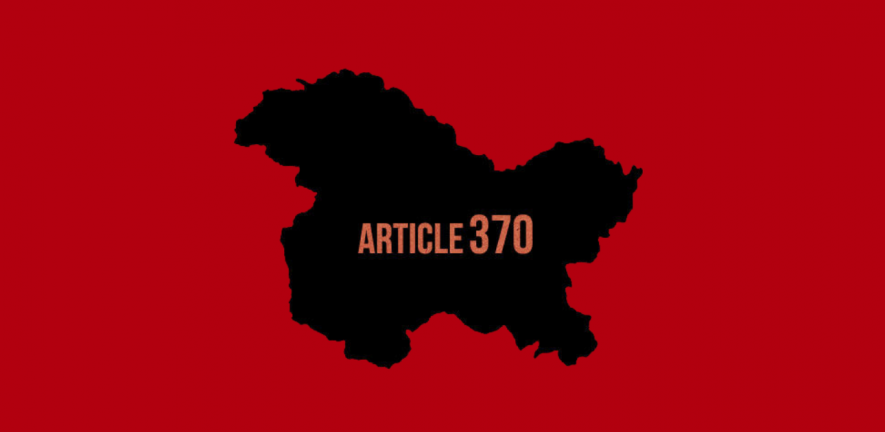Jahanvi Agarwal
The Supreme Court held that with the exclusion of Mondays and Fridays, SC will start to consider the batch of petitions contesting the invalidation of Article 370 of the Constitution on 2nd August.
A Constitution bench consisting of Justices Sanjay Kishan Kaul, Sanjiv Khanna, BR Gavai, and Surya Kant and chaired by Chief Justice of India (CJI) DY Chandrachud ruled that all parties must submit all written submissions, compilations, and documents by July 27.
The order stated that:
“The hearing of the petitions before the constitution bench shall commence on August 2, 10:30 am and then proceed on day-to-day basis barring miscellaneous days that is Mondays and Fridays.”
Furthermore, the Court also pointed out the Centre’s statement that the most recent affidavit submitted by the government should not be cited in support of the constitutionality.
It’s significant to note that the Court granted the requests of two petitioners i.e., Shah Faesal and Shehla Rashid to withdraw their arguments.
The order read:
“Solicitor General Tushar Mehta has submitted that though Centre has filed an additional affidavit setting out central govt view on post notification development. It would have no bearing on the constitutional question and it would not be relied upon.”
The incident occurred almost four years after Article 370 of the Indian Constitution was repealed, which granted the former State of Jammu & Kashmir special status.
The Central government’s decision to repeal Article 370 of the Constitution, which led to the removal of Jammu and Kashmir’s special status, is being contested in more than 20 cases before the Supreme Court. The former State was then divided into two Union Territories.
When the matters were last listed in March 2020, a five-judge Supreme Court Constitution Bench made the decision not to submit the batch of petitions to a seven-judge Constitution Bench, despite requests from several petitioners.
Prem Nath Kaul v. State of Jammu & Kashmir and Sampat Prakash v. State of Jammu & Kashmir, two Supreme Court decisions that dealt with the interpretation of Article 370 of the Indian Constitution and were issued by five-judge benches, were said to be at conflict by the petitioners.
The five-judge bench considering the case refused to transfer it to a larger bench, claiming there was no inconsistency between the two verdicts.
In February this year, the arguments were also presented before a bench headed by CJI Chandrachud. At that time, the CJI had indicated that he would “take a call” on listing the same.
On Monday, the Union Home Ministry submitted a new affidavit in which it claimed that since Article 370 was repealed, J&K has seen unparalleled peace and growth, with stone-throwing and school closure being a thing of the past.
The petitioners requested additional time to respond to the new affidavit that the Central government had presented at the hearing on Tuesday.
However, the Supreme Court disapproved of the custom of parties submitting new affidavits and papers.
“The affidavit of the centre has no bearing on the constitutional question,” the CJI remarked.
“The affidavit has been widely reported in the press,” Senior Counsel Dushyant Dave argued on behalf of one of the petitioners.
“We cannot control what is there in the press,” the Court responded.

